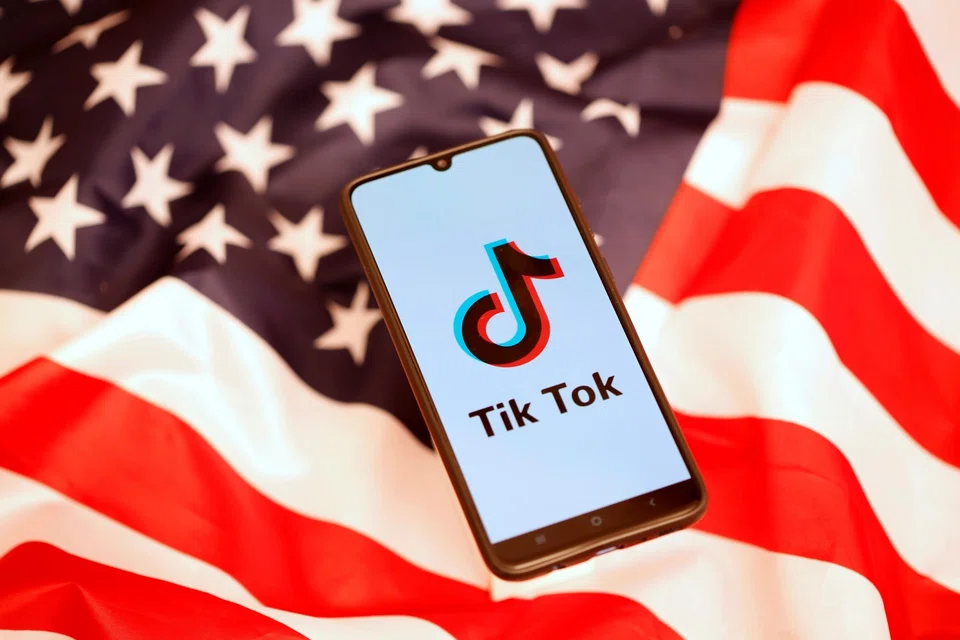Will TikTok become the next Huawei?
Amidst a China-US tech war, TikTok may soon lose its foothold in the American market, thanks to expressed national security concerns.

TikTok, a short-form video app and the international version of China's Douyin (抖音), has recently landed itself in the soup with US authorities. The trigger is all too familiar: TikTok is accused of posing a security risk to the US through intelligence-gathering and its ties with the Chinese government.
In 2017, the parent company of Douyin, ByteDance, acquired American social media app Musical.ly. Douyin was rebranded as TikTok and entered the overseas market. It quickly became viral in the US and insanely popular among the younger generation. Yet that was the start of a series of unfortunate political troubles.
In light of TikTok's increasing negative publicity, the public can't help but wonder if TikTok will become the next Huawei?
In January this year, an American think tank warned that TikTok was possibly collecting and delivering overseas users' data to the Chinese government. Nine months later, two US senators officially wrote to US intelligence officials requesting for an assessment of TikTok's security risks. Most recently, Reuters reported that ByteDance's acquisition of Musical.ly two years ago is currently being reviewed by the Committee on Foreign Investment in the United States, a committee that looks into national security implications of foreign investments.
However, Huawei's example has already proven that repeated denials of espionage accusations will not stop the US from implementing safeguards.
In light of TikTok's increasing negative publicity, the public can't help but wonder if TikTok will become the next Huawei?
As early as 2012, the US had begun to reject Huawei products from entering its market on account of safeguarding its national security. At present, TikTok is facing similar accusations and although the review is still in its preliminary stage, observers have already come up with the worst-case scenario: ByteDance will be forced to dispose of the Musical.ly app, and TikTok will lose its American market, becoming yet another victim of the China-US tech war.

In recent weeks, TikTok has activated crisis communications, reiterating that its user data is stored in America and that the Chinese government has no control over the platform's content. However, Huawei's example has already proven that repeated denials of espionage accusations will not stop the US from implementing safeguards. Likewise, American political commentators will also remain sceptical of TikTok's self-defence. We can already predict that TikTok will be faced with increasing pressure from now on.
"We still hope there will be snow water coming down from the Himalayas, because the Yellow River and Yangtze River still need it to irrigate the crops in China." - Huawei CEO Ren Zhengfei
Undoubtedly, TikTok's current plight arose out of the anxiety caused by an increasing influence of Chinese technology in the US. It is also a portrayal of an additional battlefield in the spreading China-US tech war. However, this battlefield may be even more complex and difficult to tackle than what was laid out in previous predictions. Although TikTok's fate is not yet sealed, it is not entirely bleak.
Learning from the Huawei example
In the midst of TikTok's political storm, Huawei announced last month that it achieved a 24.4% year-on-year growth in the third quarter of the year. This is an example of Huawei's ongoing efforts in demonstrating its healthy operations and business model to outsiders in recent months. Although these efforts were read differently by different industries - that America's blacklisting of Huawei has not taken effect, or that the markets outside of China are the ones bearing the brunt of the blow - generally speaking, the consensus among the Chinese and Westerners is that Huawei is not showing signs of defeat just yet.

Huawei CEO Ren Zhengfei has shown that he is very much aware of the gap between China and the US' technological standards. During the interview "A Coffee with Ren III" held on November 6 in Shenzhen, he described America as standing atop the global technological Himalayan mountains, while China, who is currently lagging behind, as sitting at the foot of the mountain. He said, "We still hope there will be snow water coming down from the Himalayas, because the Yellow River and Yangtze River still need it to irrigate the crops in China."
At the same time, the countermeasures that Huawei has taken since its battle with the US began - its frequent highlight of brilliant sales record; its launch of a new operating system, Hongmeng OS; and its signing of contracts with other countries including Europe - demonstrate that Huawei's resilience and counter-attacking moves are more powerful than expected. Beneath all these, support from the Chinese government and its domestic market is not to be neglected.
Being beaten down once they have gained increasing prominence in the US market seems to have become Chinese enterprises' inescapable fate as well.
Although TikTok and Huawei are different in terms of uses and technology, TikTok's deep penetration of multiple overseas markets and increasing influence will make it tough for America to bring it down.
The beginning of a "Huawei-like" crisis on TikTok illustrates America's distrust towards China's political and entrepreneurial systems. Being beaten down once they have gained increasing prominence in the US market seems to have become Chinese enterprises' inescapable fate as well. It remains a tough challenge for Chinese technological enterprises to bridge the gap of trust.
Currently, a glimmer of hope is shining through in the first phase of the China-US trade deal. Conflicts pertaining to China's purchase of US agricultural products, and intellectual property protection may be resolved, but it is more difficult to cool the tech war. In comparison to the trade war in terms of key technologies, infrastructure and even social media, the tech war is longer term and more intense - even a quirky app that sells mass entertainment to teenagers is not spared.





![[Photos] Fact versus fiction: The portrayal of WWII anti-Japanese martyrs in Taiwan](https://cassette.sphdigital.com.sg/image/thinkchina/3494f8bd481870f7c65b881fd21a3fd733f573f23232376e39c532a2c7593cbc)